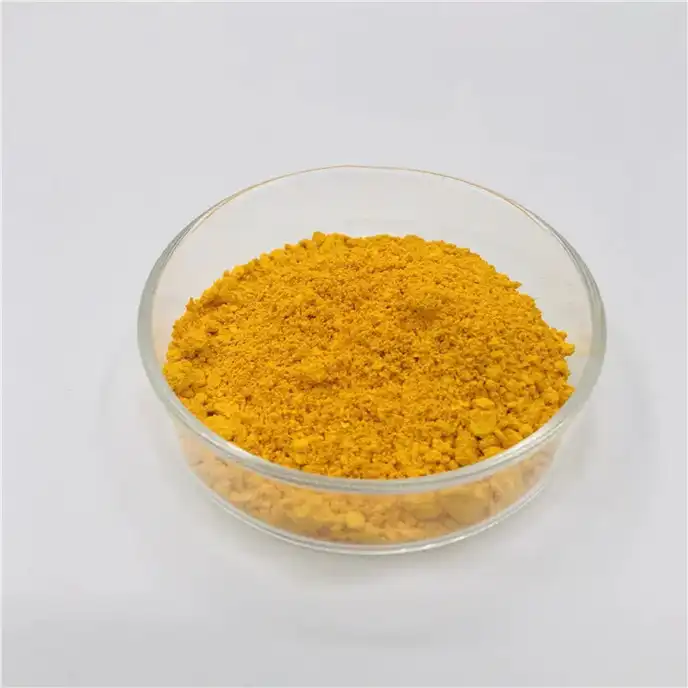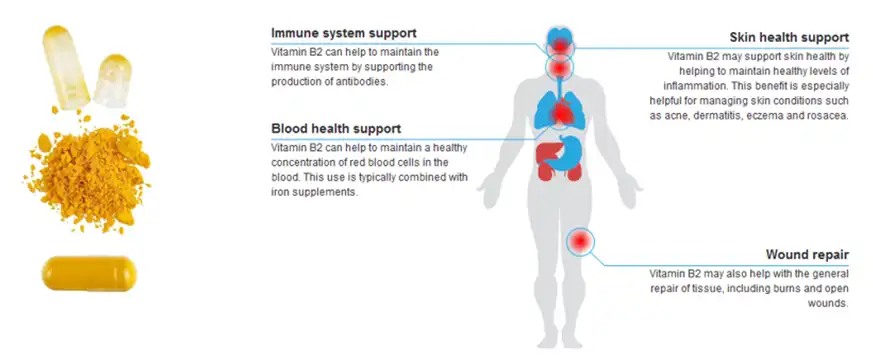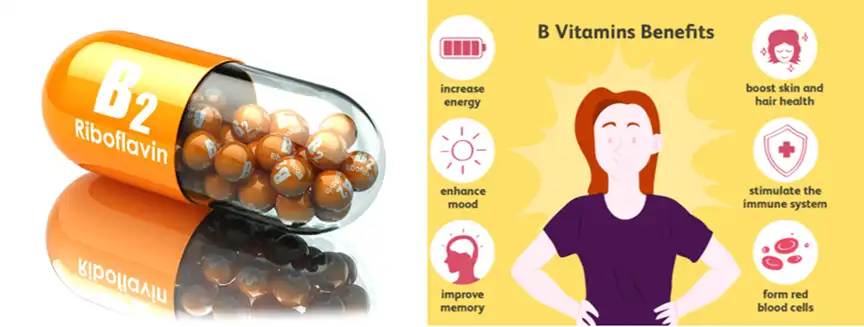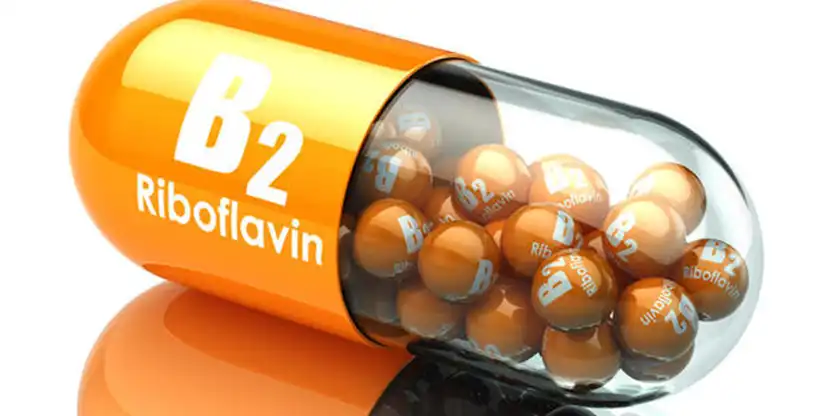What Is Vitamin B2 Riboflavin Used For?
The Power of Vitamin B2 (Riboflavin): Your Body’s Unsung Hero for Energy and Wellness
When we think about essential nutrients, vitamins like C and D often steal the spotlight. However, Vitamin B2, also known as riboflavin, is one of those powerhouse vitamins that quietly plays a critical role in keeping your body energized, healthy, and functioning at its best. Often underappreciated, riboflavin supports various biochemical reactions in the body that help turn food into fuel, combat fatigue, and promote overall health.
What is Vitamin B2 (Riboflavin)?
Vitamin B2, or riboflavin, is part of the B-complex vitamins—a group of eight essential vitamins that are water-soluble and play critical roles in maintaining our energy levels and cellular function. Riboflavin itself is crucial for breaking down carbohydrates, proteins, and fats to produce energy. It’s not stored in the body in large quantities, so we need a regular dietary intake to maintain optimal levels.
How Riboflavin Powers Your Body
Energy Production: Riboflavin is vital for the body’s ability to convert carbohydrates into adenosine triphosphate (ATP), the energy molecule. Every time you eat a meal, riboflavin helps convert the food into the fuel your body needs to function. This process is crucial for daily energy levels, exercise performance, and overall vitality.
Antioxidant Defense: Riboflavin plays a role in maintaining levels of glutathione, one of the body's most powerful antioxidants. Glutathione helps neutralize free radicals that can damage cells, contributing to aging and various chronic diseases. By supporting glutathione levels, riboflavin assists in protecting against oxidative stress and cell damage.
Eye Health: Vitamin B2 is essential for maintaining healthy vision. It helps protect the cells in the eyes from potential damage caused by UV light. Studies have also linked riboflavin intake to a reduced risk of cataracts, making it an important nutrient for long-term eye health.
Skin, Hair, and Nail Health: Riboflavin is often called the “beauty vitamin” because of its importance in supporting skin, hair, and nail health. It aids in cellular turnover and repair, helping to keep skin smooth, hair strong, and nails resilient.
Nervous System Support: By helping to break down and utilize other nutrients, riboflavin is instrumental in supporting brain health. It assists with nerve function, which is why it’s crucial for cognitive function, mental clarity, and even mood regulation.
Symptoms of Riboflavin Deficiency
A riboflavin deficiency can lead to various health issues, many of which manifest as subtle symptoms that are often overlooked. These may include:
Fatigue and Weakness: Since riboflavin is crucial for energy production, low levels can lead to tiredness and fatigue.
Cracked Lips and Mouth Sores: Deficiency often results in cracking or redness at the corners of the mouth, sore throat, or even swollen mucous membranes.
Skin Disorders: Some people may notice skin inflammation, especially around the nose and lips.
Eye Issues: Sensitivity to light and poor vision could be signs of inadequate riboflavin levels.
Nerve Function Problems: Low riboflavin levels may also contribute to issues with nerve function, potentially affecting mental clarity and mood.
Natural Sources of Riboflavin
Vitamin B2 is naturally found in a variety of foods, making it relatively easy to include in a balanced diet. Excellent sources of riboflavin include:
Dairy Products: Milk, cheese, and yogurt
Lean Meats and Poultry: Particularly liver and kidneys, which are rich in riboflavin
Green Leafy Vegetables: Spinach, kale, and broccoli
Eggs and Whole Grains: Whole grains and eggs also provide a decent amount of riboflavin
Nuts and Seeds: Almonds and sesame seeds are good plant-based sources
Who May Benefit Most from Extra Riboflavin?
While everyone needs riboflavin, certain groups may benefit from increased intake:
Athletes and Active Individuals: Increased energy requirements mean that athletes may require more riboflavin to support muscle recovery and endurance.
People with Migraines: Some research suggests that higher riboflavin intake may help reduce the frequency and intensity of migraines.
Older Adults: As we age, our ability to absorb nutrients declines, making older adults more susceptible to riboflavin deficiency.
Pregnant and Breastfeeding Women: Higher demands for nutrients during pregnancy and lactation make riboflavin essential for both mother and child.
Supplementing with Riboflavin
Most people can obtain sufficient riboflavin through a well-balanced diet. However, in cases of deficiency or specific health needs, a riboflavin supplement may be recommended. If you’re considering supplementation, consult with a healthcare professional to determine the right dosage for your unique needs.
In Summary: A Small but Mighty Vitamin
Vitamin B2 may not get the same attention as some other vitamins, but its role in energy production, antioxidant defense, and cellular health makes it invaluable. By making sure you have a riboflavin-rich diet, you can support better energy levels, improved vision, and overall wellness. Next time you reach for a nutrient-packed meal, remember that a little bit of riboflavin can go a long way in powering your day and protecting your health for the long haul.
How much riboflavin should I take daily?
Determining the appropriate daily intake of riboflavin is essential for maintaining optimal health and preventing deficiency. The recommended dietary allowance (RDA) for riboflavin varies depending on factors such as age, sex, and life stage. Daily recommendations for dietary riboflavin are as follows.
When considering riboflavin supplementation, it's important to consult with a healthcare professional to determine the appropriate dosage. While riboflavin is generally considered safe, even at high doses, excessive intake may lead to side effects such as increased urine production and diarrhea. Additionally, very high doses of riboflavin may interfere with the absorption of other nutrients or medications.
|
Life stage group |
Recommended intake of vitamin B2 (riboflavin) |
|
Infants 6 months and younger |
0.3 milligrams (mg) |
|
Infants 7–12 months |
0.4 mg |
|
Children 1–3 years |
0.5 mg |
|
Children 4–8 years |
0.6 mg |
|
Children 9–13 years |
0.9 mg |
|
People ages 14–18 |
1.3 mg for males, 1.0 mg for females |
|
People ages 19 and older |
1.3 mg for males, 1.1 mg for females |
|
People who are pregnant |
1.4 mg |
|
People who are lactating |
1.6 mg |
Can riboflavin help with migraines?
The mechanism by which riboflavin may help with migraines is thought to be related to its role in cellular energy production. Migraines are believed to be associated with mitochondrial dysfunction and impaired energy metabolism in brain cells. As a crucial component in the electron transport chain, riboflavin helps facilitate the production of ATP, the primary energy currency of cells. By enhancing mitochondrial function and energy production, riboflavin may help prevent or alleviate migraine symptoms.
Several studies suggest that people who get migraines may reduce how often they get migraines and how long the migraines last by taking riboflavin. One double-blind, placebo-controlled study showed that taking 400 mg of riboflavin a day cut the number of migraine attacks in half.
Is Riboflavin good for plants and Environment?
In particular, riboflavin has been shown to enhance plant growth by increasing production of photosynthetic pigments, increasing carbon assimilation, and even increasing tolerance to osmotic stress.
· Biodegradable: Riboflavin is a natural compound and biodegradable, meaning it breaks down easily in the environment, posing no long-term pollution risks.
· Safe for Soil and Water: Unlike synthetic chemicals, riboflavin does not accumulate in the soil or water, making it environmentally safe and reducing the risk of contamination.
· Microbial Growth: In soil, riboflavin can support beneficial microbial growth, improving soil health and nutrient cycling.
Where to Buy Vitamin B2 (riboflavin)?
You can buy Vitamin B2 (riboflavin) at YANGGEBIOTECH Company is an industry-leading manufacturer and distributor for pure dietary supplements. yanggebiotech.com is not just a consumer brand. It also supplies pure ingredients to other brands that distribute food and other supplement products. Contact yanggebiotech.com to place an order today.
Summing up, Vitamin B2 (riboflavin) is a versatile and essential nutrient with numerous health benefits. From its crucial role in energy production to its potential in preventing migraines, riboflavin plays a significant part in maintaining overall health and well-being. While many people can meet their riboflavin needs through a balanced diet, supplementation may be beneficial for certain individuals or specific health conditions. As with any supplement, it's important to consult with a healthcare professional to determine the appropriate dosage and ensure safe and effective use.
YanggeBiotech is a top choice for riboflavin due to its high-quality, natural sourcing, and strict manufacturing standards. With advanced research for better absorption, transparency in production, and a commitment to health without additives, they offer a trustworthy and effective riboflavin option.
References:
1. Boehnke, C., et al. (2004). High-dose riboflavin treatment is efficacious in migraine prophylaxis: an open study in a tertiary care centre. European Journal of Neurology, 11(7), 475-477.
2. Bruijn, J., et al. (2010). Medium-dose riboflavin as a prophylactic agent in children with migraine: A preliminary placebo-controlled, randomised, double-blind, cross-over trial. Cephalalgia, 30(12), 1426-1434.
3. Depeint, F., et al. (2006). Mitochondrial function and toxicity: Role of the B vitamin family on mitochondrial energy metabolism. Chemico-Biological Interactions, 163(1-2), 94-112.
4. Institute of Medicine (US) Standing Committee on the Scientific Evaluation of Dietary Reference Intakes. (1998). Dietary Reference Intakes for Thiamin, Riboflavin, Niacin, Vitamin B6, Folate, Vitamin B12, Pantothenic Acid, Biotin, and Choline. Washington (DC): National Academies Press (US).
5. Namazi, N., et al. (2019). The effect of riboflavin on oxidative stress in patients with type 2 diabetes mellitus: A systematic review and meta-analysis of clinical trials. Diabetes & Metabolic Syndrome: Clinical Research & Reviews, 13(3), 2098-2105.
6. Powers, H. J. (2003). Riboflavin (vitamin B-2) and health. The American Journal of Clinical Nutrition, 77(6), 1352-1360.
7. Saedisomeolia, A., & Ashoori, M. (2018). Riboflavin in Human Health: A Review of Current Evidences. Advances in Food and Nutrition Research, 83, 57-81.
8. Schoenen, J., et al. (1998). Effectiveness of high-dose riboflavin in migraine prophylaxis. A randomized controlled trial. Neurology, 50(2), 466-470.
9. Thompson, D. F., & Saluja, H. S. (2017). Prophylaxis of migraine headaches with riboflavin: A systematic review. Journal of Clinical Pharmacy and Therapeutics, 42(4), 394-403.
10. Zempleni, J., et al. (2007). Handbook of vitamins (4th ed.). Boca Raton: CRC Press.






